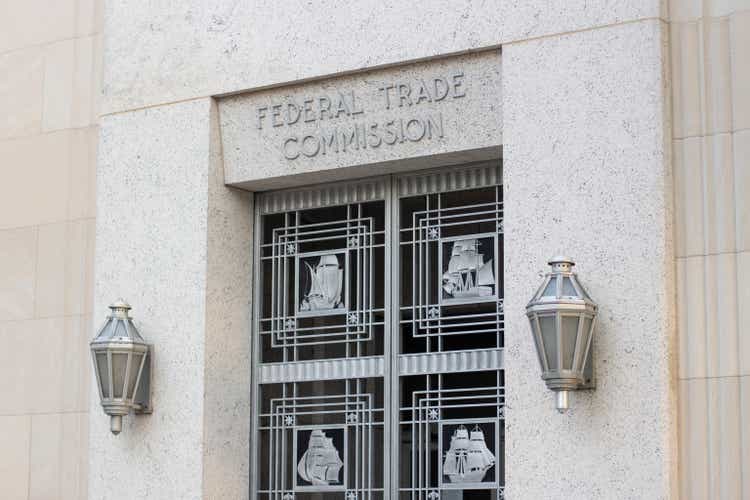
hapabapa
The Federal Trade Commission has filed an amicus curiae brief in a case being heard in a U.S. appellate court involving an alleged scheme by Gilead Sciences (NASDAQ:GILD) that paid Teva Pharmaceutical Industries (NYSE:TEVA) to delay generic versions of the former’s HIV meds, Truvada and Atripla.
At the heart of the case is the idea of “reverse-payment agreements,” in which a party, usually a generic drug maker, agrees to drop a patent lawsuit against a brand name company in exchange for a payment. As a result, generic version of a drug are delayed coming to market.
In 2023, a California jury found in favor of Gilead and Teva. The two pharmas entered into patent settlement in 2014.
Generic drug companies routinely file Abbreviated New Drug Applications after a brand drug is approved. Some of those generic drugmakers seek to market their drug before key patents on the brand version through a “Paragraph IV” certification that challenges a patent’s validity or argues the generic version will not infringe a patent. That certification usually prompts the brand company to file a patent infringement suit against the generic company.
UnitedHealth Group (UNH), along with Centene (CNC), several Blue Cross and Blue Shield entities, and Kaiser Health Plan, are part of the case.
The FTC issued its brief without supporting either the plaintiffs and defendants.
The agency argues that reverse-payment agreements, also known colloquially as a “pay-for-delay” scheme, may violate antitrust provisions.
“In patent litigation between a brand and a generic company under the Hatch-Waxman scheme, the profits the generic company stands to earn if it wins the infringement suit and launches its product are normally much less than those the brand stands to lose from generic entry,” the FTC states.
“Thus, both the brand and generic manufacturers may benefit, at the expense of consumers, if the parties settle the lawsuit with the brand company paying compensation to the generic in exchange for the generic’s agreement to stop contesting the patent and stay out of the market.”
A decision in the 2013 U.S. Supreme Court case FTC v. Actavis found that while brand companies can be sued for engaging in reverse-payment, the payments themselves are not presumptively illegal.
More on Gilead Sciences, Teva
- Teva Pharmaceutical Industries Limited (TEVA) Bank of America Global Healthcare Conference (Transcript)
- Gilead Sciences, Inc. (GILD) Baird Global Healthcare Conference (Transcript)
- Cheap Teva Stock Should Reward Patient Investors
- Gilead posts second late-stage win for twice-yearly HIV therapy
- Teva facing EU fine for disparaging Copaxone rival: report
